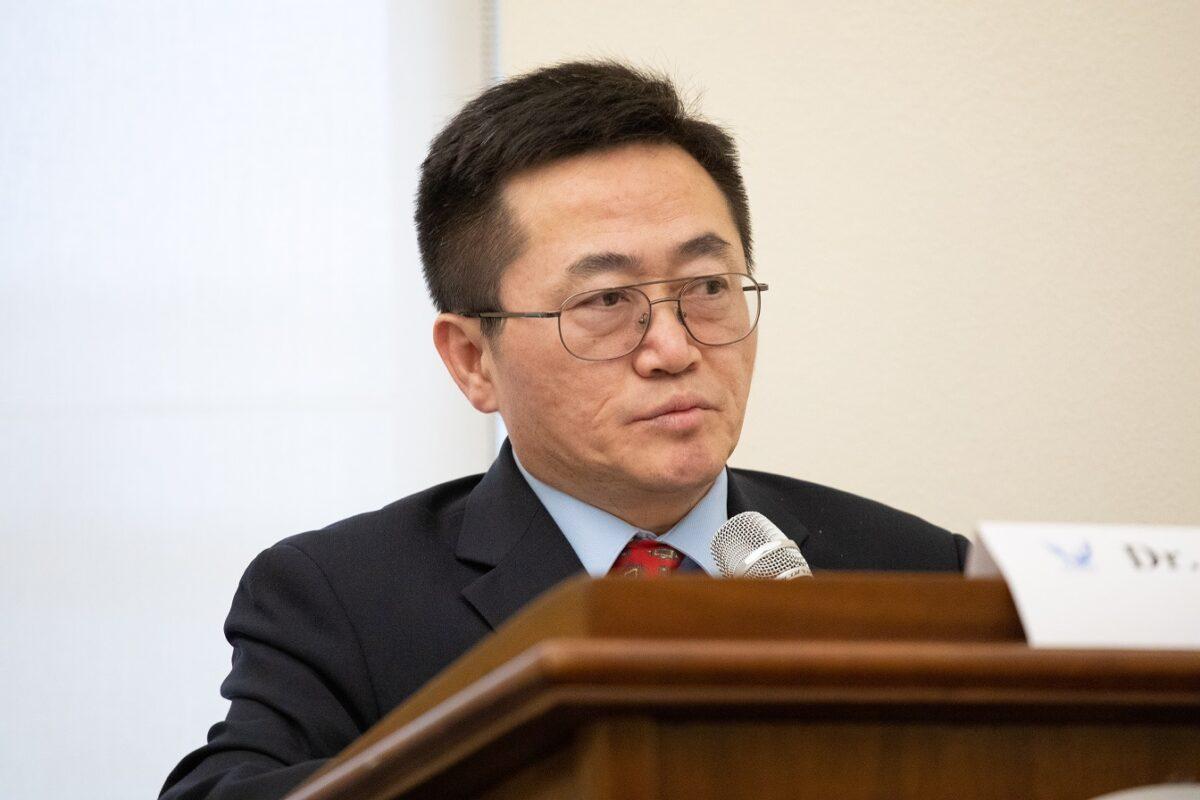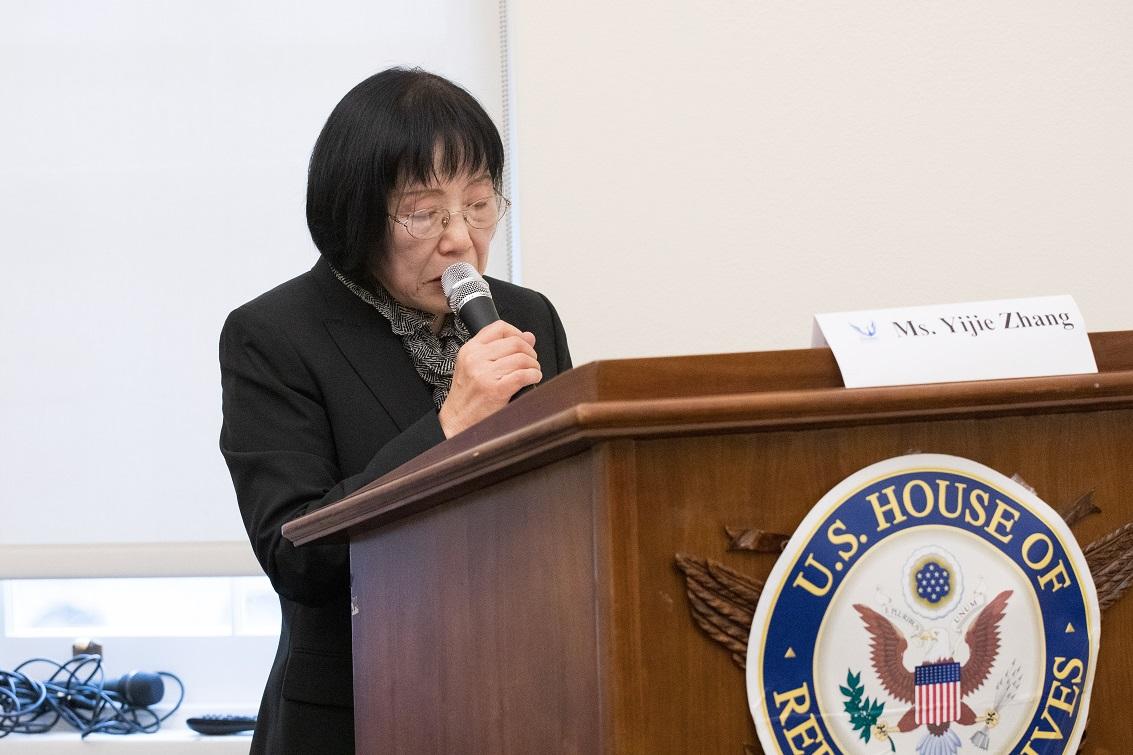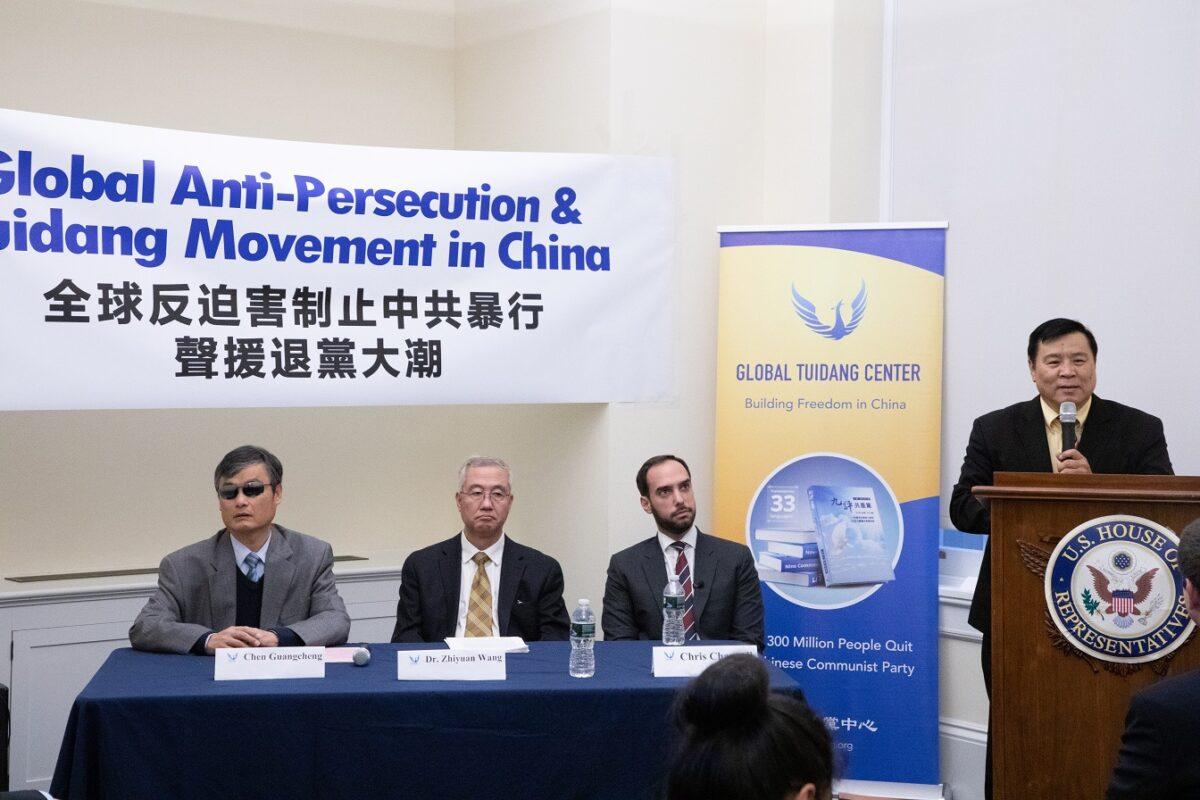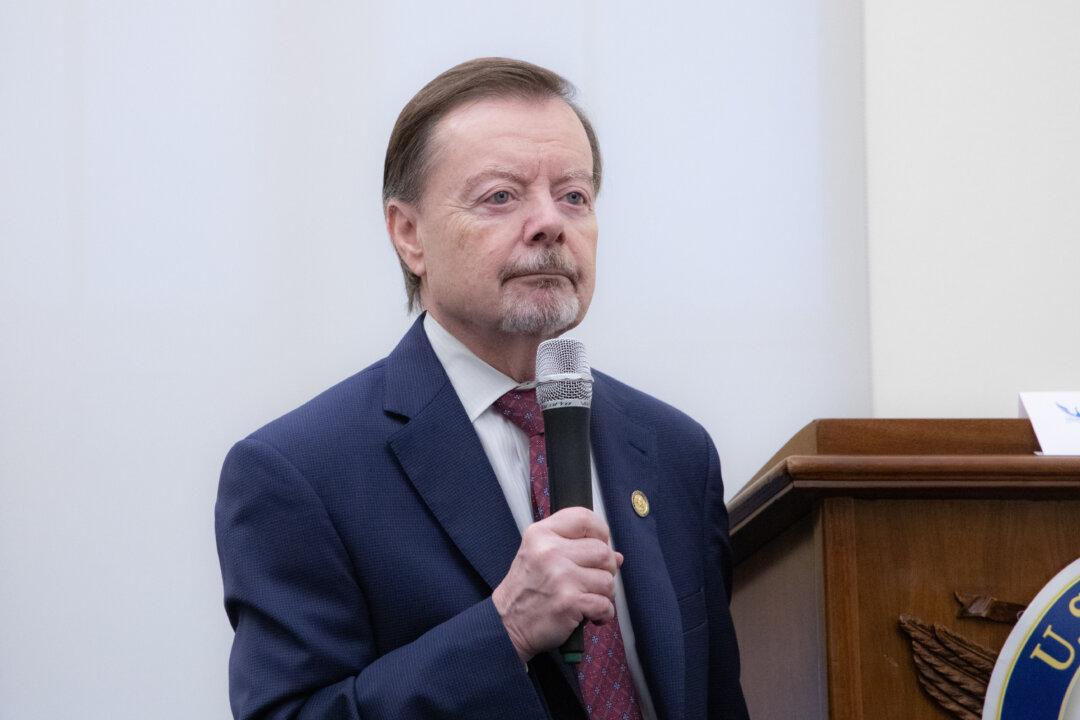WASHINGTON—The movement to quit the Chinese Communist Party marked International Human Rights Day with a forum held at the Capitol on Dec. 10.
Sponsored by the Global Tuidang Center (“tuidang” means quit the Party), speakers reviewed the progress of this grassroots movement, recounted persecution suffered at the hands of the Chinese Communist Party (CCP), and spoke of the U.S. Commission of International Religious Freedom (USCIRF) response to persecution in China.
Active in the Tuidang movement are practitioners of Falun Gong, a Chinese spiritual discipline that has, since 1999, been subjected to what Lee called “the most brutal, the most vicious and widespread of human rights violations” in the world at the hands of the Chinese regime.
Falun Gong involves doing meditative exercises and living according to teachings based on the principles of truthfulness, compassion, and tolerance. First taught to the Chinese public in 1992, Falun Gong was quickly embraced by tens of millions of people, and had an estimated 70 to 100 million adherents by 1999.

In July 1999, the Communist Party banned Falun Gong and subjected its practitioners to a nationwide persecution of a scale not seen since the Cultural Revolution (1966–1976).
Falun Gong practitioners’ twenty-year-long peaceful effort to oppose persecution has established “the golden standard for people to choose between good and evil, truth and lies, compassion and hatred, forbearance and destruction...heaven and hell.” Lee said. Supporting Falun Gong means to stand with truth and justice, and to keep away from the Communist Party, Lee said.
Ms. Yijie Zhang, a former division chief with Chinese Ministry of Commerce, has been a Falun Gong practitioner since 1994. She shared her experiences of being a victim of the CCP’s persecution over the past twenty years.
Because she did not renounce her belief, Zhang was demoted and dismissed by the Ministry. Her husband, who is also a middle-rank government official with the Ministry of Commerce, was barred from promotion and his career development was negatively affected by the persecution of his wife. Zhang’s children also suffered discrimination.
Zhang was arrested seven times by the CCP and tortured nearly-to-death while being illegally imprisoned. She finally escaped to the United States in October, 2017, with the help of the U.S. Congress and the international community. Zhang called on people worldwide who hold justice high to help bring an end to CCP and its persecution to Falun Gong.

One of USCIRF’s roles, Bauer said, is to identify governments that are violating people’s basic human rights including the freedom of belief and religion. If his commission was to shrink budget and resources to be able to monitor only one government for its practice in human rights, it would be communist China, Bauer said, because the communist regime’s “incredibly wide spread of violation of basic human rights to search (for) the meaning of life.”
While he worked as Undersecretary of Education and Assistant to President Reagan for Policy Development, Bauer said that there were lots of debates in the late 1980s in Washington about whether the United States should continue promoting trade with China to bring positive changes to the country.
“I am proud to say I was one of those that argued it would not change China,” Bauer said, “In fact, more trade with China would end up changing the United States.”
Sadly, as people have seen, Bauer said, while many Americans understand what is happening in China, they have less interest to break the status quo; people in the business community are more interested in profits in China than being a voice for Chinese people and their human rights. The situation further complicates the challenge that the United States has with China today.
Bauer quoted President Reagan’s words by saying “the world could not survive half-slave and half-free.” To change for a better world, he said, Reagan was dedicated himself to ending the slavery in the former Soviet Union.
Appointed to the USCIRF by President Donald Trump, Bauer believes Trump understands the human right issues in China and would continue to work on them as he works on the trade and national security issues.
Also speaking at the forum were: Congressman Steve King (R-Iowa); Chinese dissident Chen Guangcheng; Chris Chappell, host of the NTD program “China Uncensored”; and Dr. Wang Zhiyuan, president of the World Organization to Investigate the Persecution of Falun Gong.

